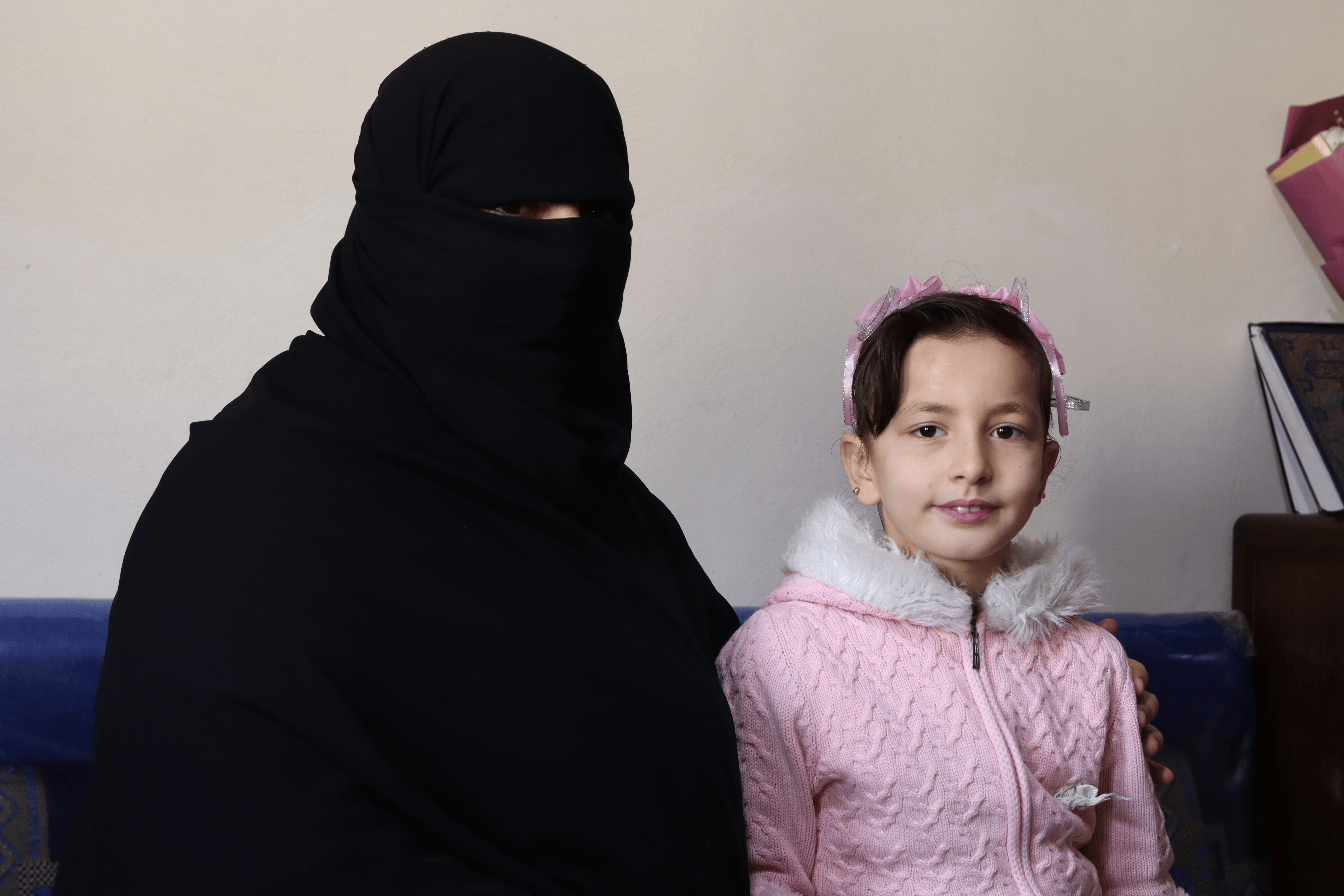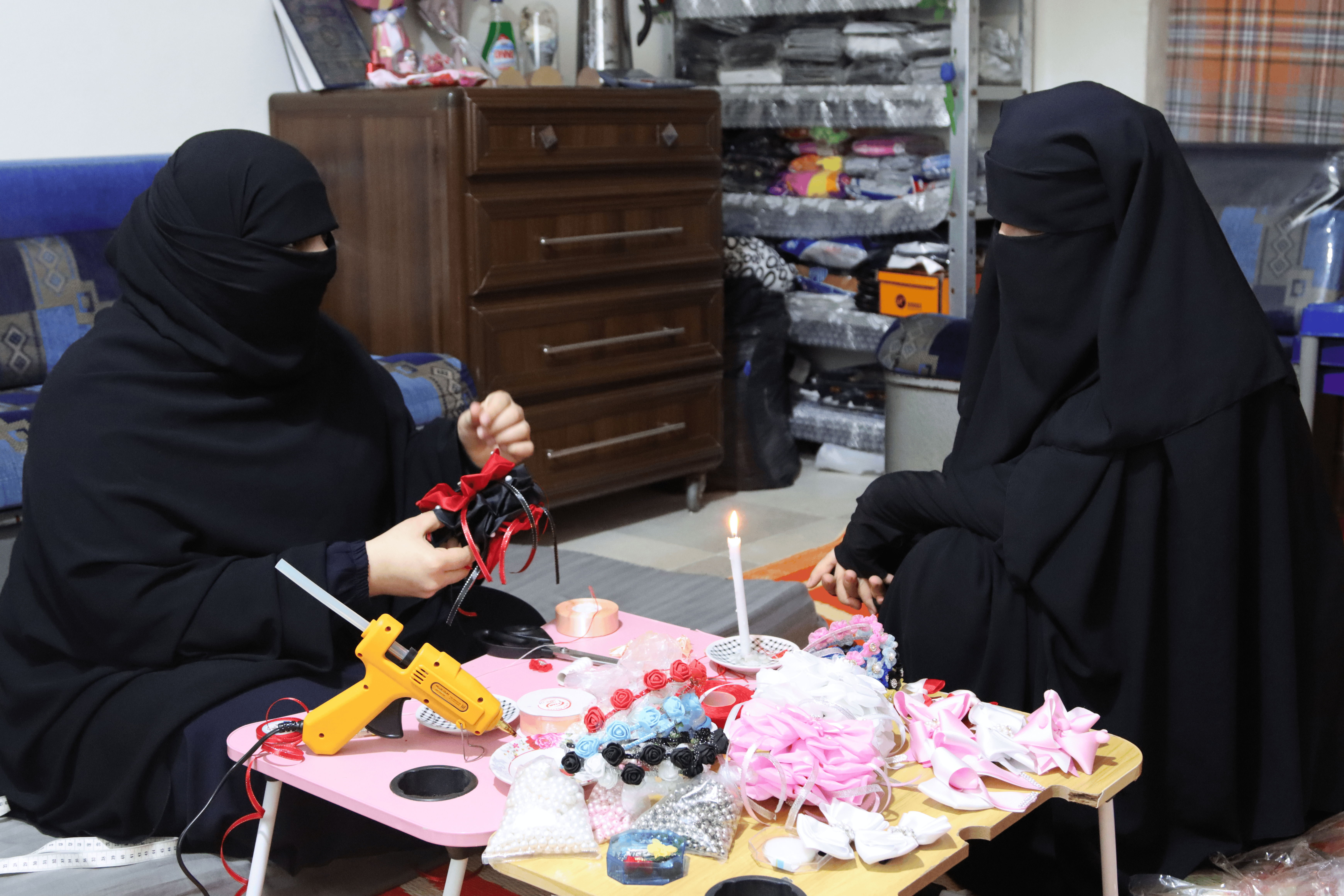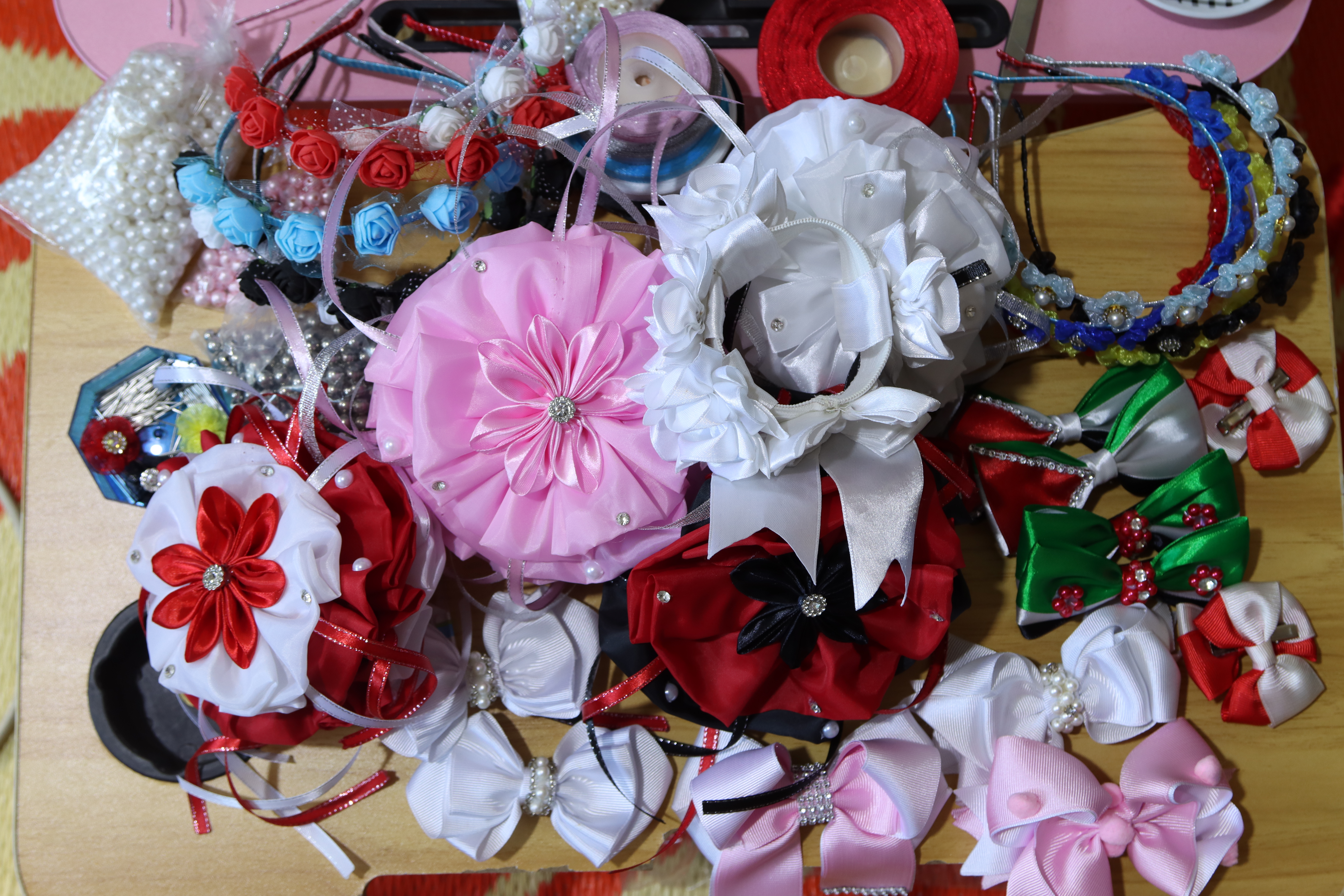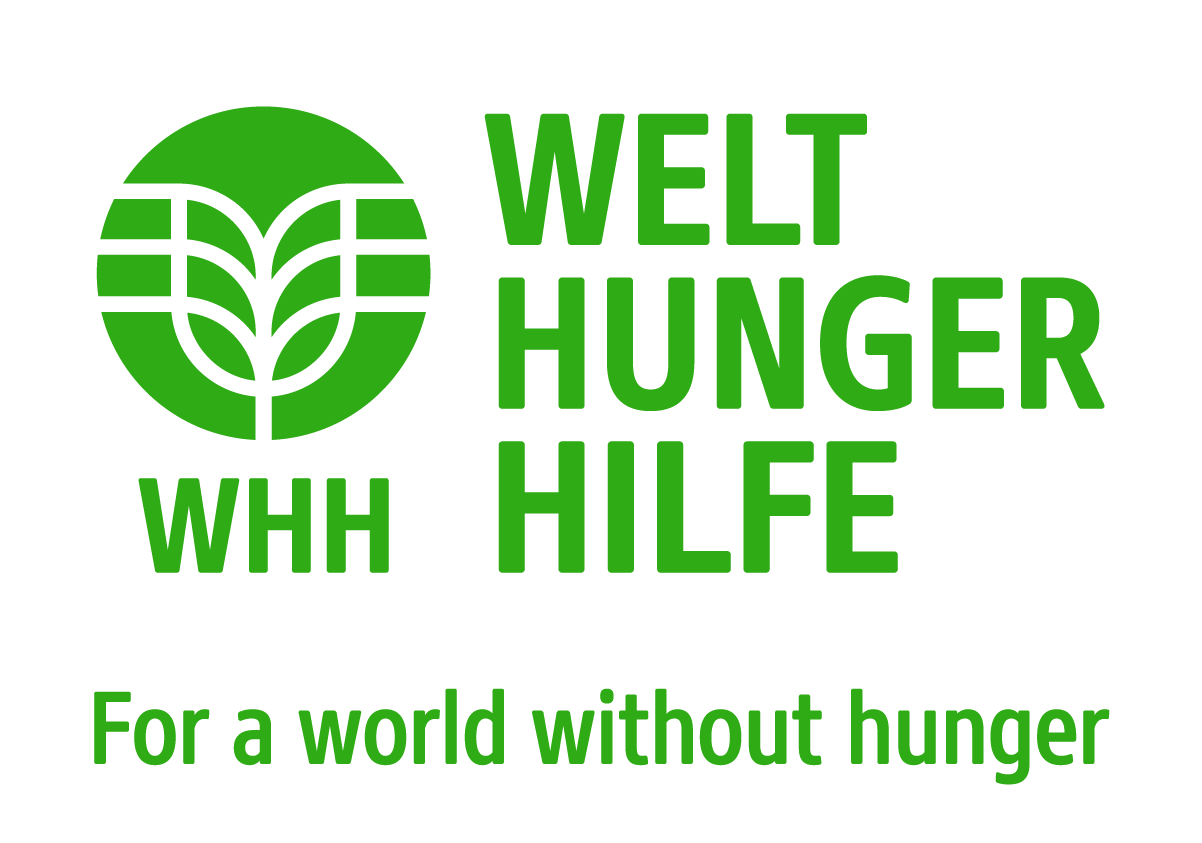Handmade Dreams :The Craft of Survival

|
Moments of warmth that Fatima experiences near her youngest daughter, Danias |
Life can turn upside down in a moment—from the warmth of family and the stability of a peaceful life to an ongoing struggle with uncertainty. Nine years ago, Fatima Al-Nahas, a 36-year-old from Ma'arat al-Numan in southern Idlib, once lived a comfortable life until tragedy struck. At 27, she lost her husband in an airstrike and was left to raise their six children alone. "Before, I lived carefree with the support of my husband, but unfortunately, not skilled in any particular vocation," Fatima recalled. Determined to provide for her family, she learned to make accessories and ornaments at a women’s empowerment center. However, constant bombing forced her to flee with her children, leaving her home behind. They eventually found safety in a widow’s camp near Azaz, where conditions were more stable. Materials previously out of reach. Fatima poured her creativity into innovative designs, working tirelessly to prepare for the grand opening of her shop.
Her eldest son, just 20, had to sacrifice his education to help provide for the family. “My heart broke every morning watching him leave for work while his younger siblings went to school,” Fatima recalled. Meanwhile, one of her daughters required eye surgery, and another needed orthodontic treatment—needs that felt impossible to meet.
After settling in Azaz, Fatima knew she needed an income to support her six school-aged children. Determined to provide for them, she began crafting accessories and receiving small orders. However, the cost of quality materials was a constant barrier, and while her eldest son occasionally sold her items on the streets, the income was insufficient.
Despite her struggles, Fatima reached out for support and applied for a small business grant after seeing an advertisement from Welthungerhilfe (WHH). Her hope grew when she learned about the this opportunity, which offered grants and entrepreneurial training to vulnerable families in northwestern Syria. Fatima’s proposal for a small business making accessories and ornaments was accepted after attending the training.

|
Showcasing some products and convincing the customer to buy them |
Funded by the European Union, Fatima received a $1,200 grant, allowing her to buy high-quality materials, along with $300 for basic needs. With support from WHH, she launched her business, using the funds to purchase supplies and sell her handmade products in local markets and camps. The opening was a success, and Fatima promoted her store on social media, drawing admiration for her products. Encouraged by her training, she expanded her reach to larger stores in Azaz and Afrin, with plans to grow into Dana. Orders began pouring in, boosting her confidence in her business. “Competing in the market has been a thrilling challenge,” she shared.
With her earnings, Fatima could buy heating materials for winter, pay her daughter’s tuition, and save for another daughter’s medical treatments. She dreams of seeing her children achieve their goals and is working hard to expand her business.

|
Fatima handcrafts some of the products. |
